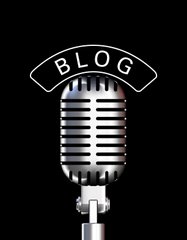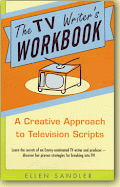






Born in Philadelphia, Pennsylvania, in 1955, Linda graduated from Yale University with a B.A. in English (cum laude) in 1976. She began working as a proofreader/copyeditor for Peterson’s Guides in Princeton immediately upon graduation, and then worked as a production editor for Boston University Publications from 1978 to 1981. Returning to the Philadelphia area in 1981, she became Medical Dictionary Editor, and then Developmental Editor for Medical Acquisitions, for F.A. Davis Co., medical publishers.
She moved to the Portland, Oregon, area along with her then-husband Jon and their four-year-old daughter, Wendy, in 1989. In Oregon, she worked as a freelance editor, mostly on medical/nursing/allied health books and on engineering reports. In addition to working at a local bookstore, she volunteered extensively in several local school districts for 15 years, delivered for Meals on Wheels (along with her daughter) for five years, and participated in two book clubs, the latter of which she was a founder and still serves as unofficial secretary, now in its 13th year.
She began working as Editor for First Books and Inkwater Press in 2004, where she edits fiction, nonfiction, poetry, and children’s books. She also continues to work as a freelance editor, where she uses her experience in helping authors at all stages of development and editing. Her goal is to polish authors' work--so that it is in the best shape possible for submission to agents, publishers, contests, or for self-publication.
A crucial side-benefit of Linda’s work for Inkwater Press was her meeting and falling in love with Howard G. Franklin, an Inkwater author, as they worked together on his book An Irish Experience, published in 2008. They married in June of 2008, and continue to collaborate in life, love, and literature, editing, revising, and polishing Howard’s books of poetry and fiction.
E.I. Please tell our readers how long have you been editing adult fiction and nonfiction, children’s books and education materials? What was your process in editing as freelance editor?
LTF: Having always been one of those (perhaps annoying) people who pick out and complain about misspellings and grammatical errors (it’s not our fault, the errors jump up and point themselves out!), I early on thought that I would enjoy being an editor. And so, upon my graduation from Yale in 1976 (to be honest, it was a week before my graduation, but I was allowed to take a day off to go back to New Haven for the ceremony), I began working as a proofreader/copyeditor. And have never wanted to do anything else.
As far as my editing, whether freelance or for a publisher, my process is essentially the same. I try to determine what the author wants/needs--there’s a huge difference between the different types of editing. Usually, I am copyediting a manuscript, although sometimes there is developmental work needed beforehand. Mainly, I am very respectful of my authors, and I will generally edit relatively lightly unless they’re open to a heavier hand. I try to make their manuscripts the best they can possibly be. I value consistency, which is often an issue. Because an author may have spent years writing his or her manuscript, over the course of time details (and his or her memory) can become blurred, and so names change, dates are inconsistent, etc. Because I am able to take a fresh look at the manuscript, over a short period, I can see those name discrepancies, chronological inconsistencies, and other leaps of illogic, and correct them.
E.I. Do you think it’s a mistake for a fiction writer to start his / her opening chapter without introducing the protagonist until the third chapter? Should there be set of rules or strategy?
LTF: I’m not a great believer in rules for writing (now grammar, of course, is a different story, although even with grammar rules, there are times and places when it’s important to break the rules). These days, especially, so many different and innovative kinds of writing are finding audiences and widespread acceptance. Generally, I would prefer for the protagonist to be introduced in the first chapter or two, and I believe most readers would agree. But if the first two chapters are compelling, and there is good reason to delay the introduction, I don’t think it’s necessarily a mistake.
E.I. The voice or personality of a writer is critical because voice can’t be helped or changed. Some take years to get it, others never do – so do you agree that an author either have one you like or you don’t have it can still be a good writer? Do you advise them on what to do to make their book a bestseller?
LTF: I do believe that voice is critical. Again, however, different readers may respond to different voices, so it’s not necessary for ME to like your voice; there are still readers who might love it. What is more important is for the voice to be clear and strong, but I agree that it’s hard to “teach” that.
I absolutely don’t advise authors on what they can do to make their book a bestseller. Publishing is a very tough business, and so much depends on luck (and MARKETING). Plus, having a name like Stephen King or Dan Brown doesn’t hurt either. All I can do is advise on how to make the book as good as it possibly can be, which may include what would make it more commercially acceptable, but how to achieve bestsellerhood…I wish I knew.
E.I. When you start editing a manuscript, what are you looking for in an author? Press worthy, Promote-ability or the voice and personality of their writing.
LTF: That’s a very good question. First, I would have to say, I’m looking for writing that I like. Which can mean different things--sometimes it’s just beautiful writing, masterful use of words and phrases. Sometimes it’s a great plot, sometimes it’s incredible character development. Just as readers have different tastes, so do editors. So while I tend to prefer more plot-driven books that are well-written, I enjoy editing all sorts of writing. It’s certainly helpful if the book is easily promotable because of its distinctive voice, outstanding writing, gripping plot, etc. But so much of “promotion” depends on the willingness of the author to go the extra mile, to promote him- or herself through author appearances, networking, blogging, getting out there in the world!
E.I. What is your single-best, most-important, can’t-live-without writing tip you would offer to aspiring writers?
LTF: To borrow a phrase from Nike, Just do it! Don’t talk about how you’d like to do it, when you finally have the time and space and just the right set-up. Just do it. And then do it again. And let it sit, revisit it, revise it, polish it. And be open to criticism. I believe that many aspiring writers can learn a great deal from joining a writers’ group or workshop, where they critique each others’ ongoing work. These days, the groups can even be virtual, over the internet, so there’s no age or geographical impediment to joining and benefiting from a writers’ group.
Photo of Linda T. Franklin by Donna Kleinman
To learn more about Linda T. Franklin, please visit her website











.png)

No comments:
Post a Comment